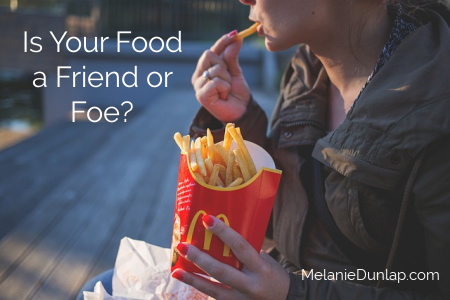Many people have a complicated relationship with food, for different reasons – concerns about health and physical appearance, and feelings and memories associated with food.
However, where you stand in regard to food is not always clear.
Finding out where you stand is the first step towards a healthier, more fulfilling relationship with food.
Friend
It’s very common for parents to use unhealthy foods to motivate their children to do something – from eating their veggies to finishing their homework or cleaning their room.
And although parents mean no harm, many people continue to associate unhealthy foods as rewards when they grow older.
According to a 2016 study from Aston University, another consequence of using food as a reward in children is emotional eating – turning to food when you’re bored, sad, or angry instead of eating only when you’re hungry. That’s why as an adult you might still feel tempted to reward yourself with a fast-food hamburger after a long week’s work.
Food may also be a source of comfort. Many people get home after a long day of work craving some takeaway or a large serving of ice cream to go with that Netflix show.
When adults feel a lack of support and comfort from others, they may turn to social surrogates, or non-human things that make them feel a sense of belonging. It may be your favorite TV show, a photo album full of positive family memories, a celebrity, or the foods associated with positive experiences.
These positive associations with food also show in the brain. A 2013 study by the National Institutes of Health shows sugary foods, even more than fatty foods, stimulate the pleasure centers of the brain.
Foe
You started a new diet this morning, but let’s say you had a muffin with your coffee after lunch. You’ve already slipped, so you might as well order takeout for dinner and start again from scratch tomorrow.
When people first become interested in healthy diets, many often associate it with restricting foods. No sugar. No white foods. No processed foods. No meat. And when they slip, they feel guilt or shame. Which, in turn, demotivates them and undermines their efforts.
And so, food becomes the enemy – something to be controlled, measured, and sometimes even avoided. You make plenty of rules about what, when, and how much they can and cannot eat.
However, restricting does little to help you gain the control you seek over food. It tends to have the opposite effect. Even if your diet fills all your nutritional needs, a repetitive diet will lead your brain to stray – in this case, to the very foods you are avoiding.
Thinking of food as the enemy also leads to anxiety in social situations. Many social gatherings revolve around food – family dinners, business lunches, brunches with friends, drinks and snacks during sports events. If you’re restricting many foods, you may even feel the need to avoid the social events where that food is consumed.
Ultimately, an aversion to food paired with other psychological and genetic factors may even lead to an eating disorder or other serious health consequences.
Is there a balance?
To create a healthy relationship with food, it’s important to start seeing it as it is – the fuel that helps your body work efficiently.
Food is not an effective way to deal with emotions. Instead, reconnect with your body and your mind, and learn strategies to properly address your physical and emotional needs. For example, if you overeat when stressed or bored, find ways to reduce those feelings. Instead of heading to the vending machine, you could go out for a walk or talk to a friend.
But you also need to remember what it’s like to feel hungry, thirsty, and full. That way, you’ll respond to those stimuli accordingly – eat only when you’re hungry (not thirsty) and stop when you’re full.
Learn to eat mindfully, and to choose nutritious foods with the occasional treat. If you enjoy every bite without distractions, you’ll feel more satisfied with your meal.
